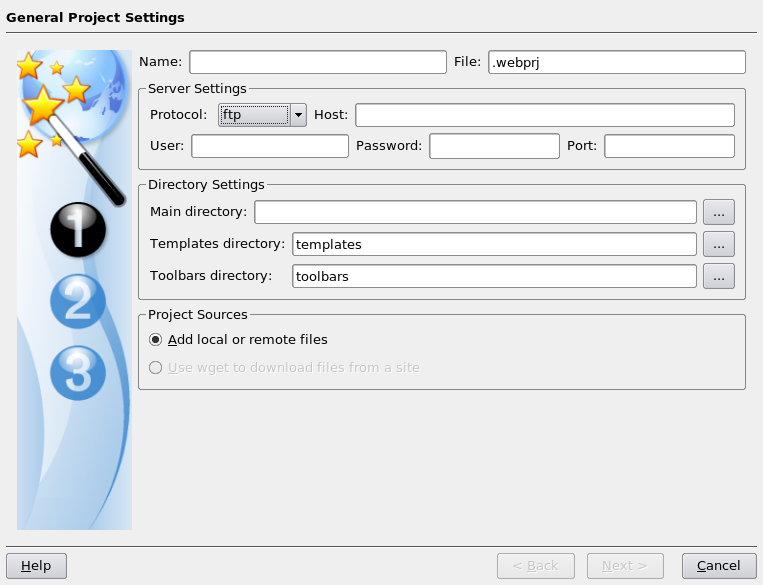A collection of lessons learned from using Eclipse on Ubuntu
9th July 2008I have been running into a few woes on the home computing front that may or may not give rise to a number of posts on here. Having my Windows VM’s going awry on VMware is a more worrying development with my need to use a Windows-based application for my hillwalking mapping but I am going to devote this entry to a spot of bother that I started to have with Eclipse, if only because I managed to sort that one out.
Up to yesterday, I had all my offline website development stuff in a single project area for sake of ease of testing. I suppose that I got led into this by my use of Dreamweaver and the way that it sets up what it calls Sites. Applying that same of working to Quanta Plus and Netbeans just chokes up the respective IDE’s and makes them less usable. Until recently, Eclipse escaped this because it seemed to check if a file had changed when you tried editing it and asked you if you wanted the latest version. This stopped in the last few days for whatever reason and it started to stall just like the others.
Naturally, I wanted to set it back as before so a certain amount of investigation was in order. I ended up refreshing my installation in /usr/lib, a manual extraction of the Eclipse PDT archive but that didn’t resolve the issue. In fact, it created another one but we’ll talk about that later. Creating a smaller project made it all work again and I’ll be building up a number of these.
The new issue pertained to the creation and selection of the Eclipse workspace. There was no problem using what I wanted it to use but it wouldn’t remember the setting. There was more blundering about before I happened on the cause: access permissions. I copied the new Eclipse files in as the root user and that meant that Eclipse couldn’t update its setting when I was running it under my own account. Running the editor using sudo sorted out the workspace selection issue for now but a more permanent fixing such as giving myself write access to the configuration directory and what’s in there remains an outstanding task.
The mention of the Eclipse workspace brings me back to the way that it was working before the upheaval hit me. It does keep a copy of every file that you edit in there and maybe more besides. Thus, having a copy of every file in the project would have meant that it didn’t need to do the constant churning being performed by Quanta or Netbeans. That’s impression that I have but I’ll sticking with smaller project bundles from now on. Learning all this was useful.
A reasonable requirement of an IDE
20th May 2008I have been having a play with NetBeans
On a similar note, I recently dispatched Quanta Plus from my system for sluggish start-ups and will not return to it because other alternatives such as Bluefish and Eclipse PDT fit my needs much better. I like my editors to be slick and responsive and Quanta has been around long enough for any slowness to be knocked out of it. However, I get the feeling that the extras have added bloat while I expect any additional functionality that I never use not to get in my way. It is for the latter reason that I was always able to get on with Dreamweaver and even run it on Ubuntu using the WINE library. If I really wanted a stripped out yet functional editor, Gedit would do most of what I need -- it colour codes syntax for a variety of languages for a start -- but it’s always handy to have a file system explorer window incorporated and I value any syntax checking and auto-completion as well. So, it looks as if Eclipse and Bluefish could be serving my needs for a while to come alongside so use Dreamweaver for online editing of website files.
Setting up Quanta Plus to edit files on your web server
3rd December 2007On Saturday, my hillwalking and photo gallery website suffered an outage thanks to Fasthosts, the site’s hosting provider, having a security breach and deciding to change all my passwords. I won’t bore you with the details here but I had to change the password for my MySQL database from their unmemorable suggestion and hence the configuration file for the hillwalking blog. To do this, I set up Quanta Plus to edit the requisite file on the server itself. That was achieved by creating a new project, setting the protocol as FTP and completing the details in the wizard, all relatively straight forward stuff. I have a habit of doing this from Dreamweaver so it’s nice to see that an open source alternative provides the same sort of functionality.
